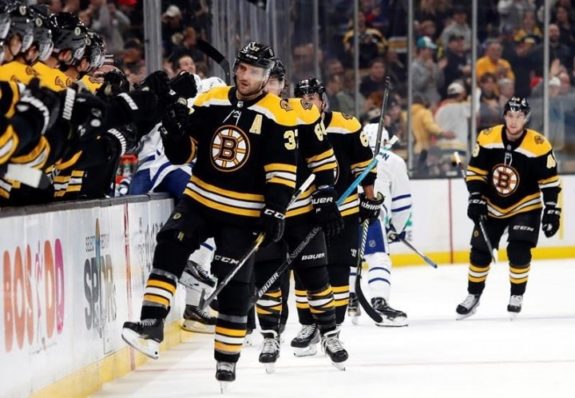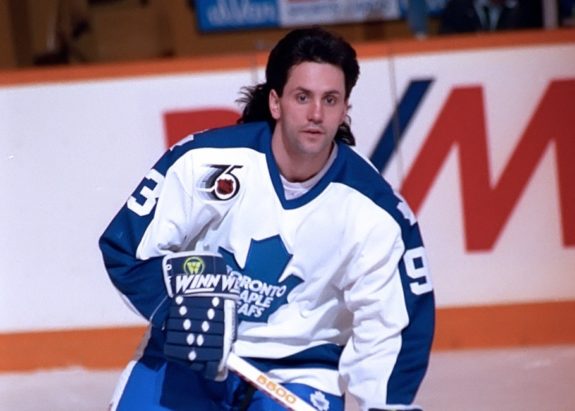As the final whistle sounded to end the 2020 European Football Championship, a pall of gloom enveloped Wembley Stadium, the city of London, and England as a footballing nation. The faces of team captain Harry Kane, coach Gareth Southgate, and penalty takers Marcus Rashford, Jadon Sancho, and Bokayo Saka symbolized the seemingly endless futility of the England national team. The Three Lions haven’t seen success at a major tournament since Queen Elizabeth shook hands with Bobby Moore at the 1966 World Cup.
Social media was aflutter with comments lamenting yet another loss in England’s endless quest. Many comments also compared the England team to the Toronto Maple Leafs, who are in the midst of another well-known championship drought. When we examine the connection between the Maple Leafs and England, the parallels don’t just exist; they mirror each other. Don’t worry, though. This article’s not going to be all painful memories.
Droughts of Epic Proportions
Dollars to doughnuts, if you asked anyone on the planet to tell you a single fact about the Toronto Maple Leafs, they’d tell you that they own the longest active championship drought in NHL history. They haven’t hoisted Lord Stanley’s Mug since 1967, and at 54 years, it’s now both the longest drought in terms of years and in terms of days. The Maple Leafs recently leapfrogged the New York Rangers (1940-1994) for that dubious honour.
The Leafs haven’t won a playoff series since 2004, when they dispatched the Ottawa Senators in seven games. Most of the current roster were young children between the ages of three and ten. When they last raised the Cup, Elvis and Priscilla Presley were newlyweds. America was two years from putting astronauts on the moon. The number one song on the Billboard charts was The Monkees’ “A Little Bit Me, A Little Bit You.” To win the 1967 Stanley Cup, the Leafs defeated the Montréal Canadiens in six games, with legend Dave Keon taking home the Conn Smythe Trophy as playoff MVP.
Like the Maple Leafs, the England national team’s championship drought is over 50 years old. Currently standing at 55 years, they haven’t won a major tournament since the 1966 World Cup hosted in England and the final played at the legendary Wembley Stadium. Queen Elizabeth II was 40 years old at the time and in her 14th year as head of the Commonwealth. For perspective, she is now the longest-reigning monarch in British history. In that final, England defeated West Germany 4-2 on a hat trick from Geoff Hurst. Since then, England failed to reach the final of a major tournament until Sunday’s against Italy. Until Sunday, the England side had made fifteen major tournaments and failed to advance to the final each time.
A Trail of Heartbreak
In recent memory, the Toronto Maple Leafs have been plagued by heartbreak. In the lockout-shortened 2013 season, they reached their first postseason in nine years and faced off against the Boston Bruins in the first round. The Leafs took the heavily-favoured Bruins to seven games and took a 4-1 lead with ten minutes remaining in the third period. Every Leafs fan knows what happened next, as the Bruins stormed back to win in overtime on a goal by Patrice Bergeron. They made the playoffs again in 2016-17 with the most exciting team in a decade but couldn’t make it past Alexander Ovechkin and the Washington Capitals. Regular-season success continued for the Maple Leafs, but playoff victories have been much more elusive.

In the 2021 playoffs, the Leafs suffered another historic collapse, this time at the hands of the Canadiens. They finished the regular season atop the North Division and were among the best teams in the league. They entered the Stanley Cup playoffs as the odds-on favourites to capture the Cup and looked to be on their way when they took a three games to one series lead. The Canadiens staged an improbable comeback and eliminated the Maple Leafs in seven games.
For England, their history of heartbreak has its roots in the penalty shootout, which has since become the bane of any England fan’s existence. In the history of the England national team, they own a 3-7 record in penalty shootouts. In Sunday’s final, England missed three penalties, with two of them saved by Italian goalkeeper Gianluigi Donnaruma. Their penalty shootout curse began at the 1996 European Championship — again hosted in England — in the semifinal against Germany. England and Germany had each scored on every opportunity until Andreas Köpke saved Gareth Southgate’s attempt. Andreas Möller then potted the next spot-kick to eliminate England and send eventual champions Germany to the final.
Controversies Abound
Both the Maple Leafs and England have also been the victims of controversial officiating. Maple Leafs fans continue to wax poetic about the 1993 Stanley Cup playoff team led by Doug Gilmour, which made it to the Campbell Conference Final against Wayne Gretzky’s Los Angeles Kings. In Game 6 of that series, Gilmour was cut by a high stick from Gretzky that went unpunished by referee Kerry Fraser. If all had played out appropriately, Gretzky would’ve been dealt a major penalty and ejected from the game. Although no one can assume or predict what may have occurred had Gretzky been thrown out, it’s fair to say that all Leafs fans believe the Buds would’ve won Game 6. Instead, Gretzky remained in the game and scored the winner in overtime.
Fraser has since admitted his assessment of the play was incorrect and that he did not see what led to Gilmour’s cut forehead.

The officiating controversy for England came in the 1986 World Cup quarterfinal versus Argentina. With the game scoreless, Argentine superstar Diego Maradona received an airborne pass between two English defenders, which was immediately contested by England keeper Peter Shilton. Both Shilton and Maradona reached for the ball with outstretched arms. Maradona’s fist touched the ball first and redirected it into the England goal. The referee allowed the goal even after confirming with the linesman. Like Gretzky’s high stick on Gilmour, events should’ve played out differently. Maradona’s goal should’ve been disallowed, and he should’ve received a yellow card, which would’ve England given a penalty for the handball in the 16-yard box. Maradona’s goal quickly became known as the “Hand of God.”
Like Kerry Fraser, Maradona had also admitted the non-call by the referee was incorrect. In his autobiography I Am Diego, he says:
“Now I can say what I couldn’t at that moment, what I defined at that time as The Hand of God. What hand of God? It was the hand of Diego!”
Diego Maradona on his controversial goal versus England in the 1986 World Cup quarterfinal (from “Yo Soy el Diego.” 2000. p. 32)
The Toronto Maple Leafs and the England national side share many similarities. The teams and the fans have been victims of controversy and circumstance more times than can be counted. There’s fraternity in knowing that fans will never waiver in their support, in knowing that eventually, what once was good can be good again. The Maple Leafs and England are cosmically connected. Just like both teams have a shared history of heartbreak and disappointment, both are also in the middle of successful resurgences that should give hope to every fan.
It’s coming home.